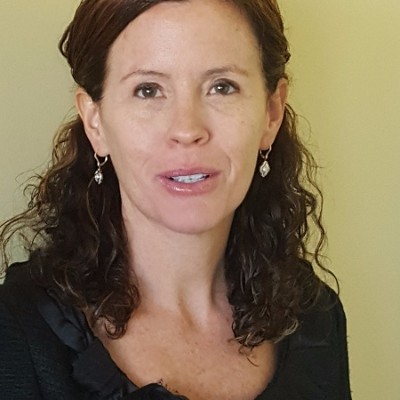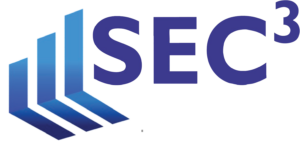Yesterday, the Securities and Exchange Commission (“SEC”) adopted amendments to Form PF that affect advisers to all private equity funds and large hedge fund advisers. The amendments will require timely reporting for specific events that are indicative of fund stress or investor harm. The actual metrics that are reported will vary by event but will include space and opportunity for explanations. The amendments also introduce a new basis for calculating certain of these metrics, replacing the most recent net asset value in those cases. The “reporting fund aggregate calculated value” (“RFACV”) is designed to reflect the current financial position of the fund and includes every position in the fund’s portfolio (including cash and cash equivalents, short positions, and fund-level borrowing) using the most recent price or value applied to the position.
Large Hedge Fund Advisers:
For purposes of Form PF, large hedge fund advisers are defined as advisers who, along with related persons, collectively have at least $1.5 billion in hedge fund assets under management. The amendments will require large hedge fund advisers to file timely reports within 72 hours triggered by the following events:
- Extraordinary investment losses, amounting to 20% or more of RFACV;
- Significant margin and default events;
- Significant increases in margin (20% of RFACV);
- Fund margin default or inability to meet a margin call;
- Counterparty margin default;
- Prime broker relationship termination or material restrictions;
- Operations events, where the adviser or fund experiences a “significant disruption or degradation” of a fund’s “critical operations,” due to events or developments at the fund, adviser, or service provider to the fund; and
- Large withdrawal and redemption requests (over 50% of NAV) and inability to satisfy or suspension of redemptions (for more than five days).
Private Equity Fund Advisers:
For purposes of Form PF, private equity advisers are defined as investment advisers with at least $150 million in private equity fund assets under management. The amendments will require advisers to Private Equity funds to make reports on a different timescale, within 60 days of quarter end rather than on a current basis, as they are less focused on secondary markets in real time. Private equity fund trigger events target more investor-focused risks and adviser conflicts and include Adviser-led Secondary Transactions and the Removal of General Partner or Election to Terminate the Investment Period or Fund. Adviser-led Secondary Transactions are defined as any transaction initiated by the adviser, or any related person, that offers fund investors the choice to:
- sell any portion of their interests in the fund; or
- convert or exchange any portion of their interests in the fund for interests in another vehicle advised by the adviser or its related persons.
Large Private Equity Fund Advisers:
For purposes of Form PF, large private equity advisers are defined as private equity fund advisers with at least $2 billion in private equity assets under management. The amendments will also require annual reporting by large private equity fund advisers of additional information related to:
- Clawbacks and Givebacks;
- Fund-level borrowings;
- Events of default, bridge financing to controlled portfolio companies, and geographic breakdown of investments; and
- Additional information regarding private equity fund investment strategies.
Please note that when an adviser has cause to make an event filing, they need not submit updates to the entirety of Form PF (unless such update is due in the normal course). Filing fees for event reporting are due to be announced.
Certain elements from the original proposal were notably absent from the adopted rule, including a metric for changes in unencumbered cash for hedge funds. This was left out of the final rule due to variations in measurement, the different needs of individual investment strategies and their respective routine cash movements. Collectively, these issues likely would have resulted in reporting of false positives that would be difficult to discern from actual fund stress.
For private equity fund advisers, a number of questions from the proposal were omitted from the final rule, including those related to restructuring and recapitalization of portfolio companies; investments in different levels of a portfolio company’s capital structure by related funds; financing of portfolio companies; borrowings of controlled portfolio companies; and controlled portfolio companies owned by private equity funds. Additionally, the proposal to reduce the threshold for large private equity fund advisers from $2 billion to $1.5 billion was not adopted.
The amendments will become effective six months after publication of the adopting release for current and quarterly event reporting and one year after publication for the remainder of the amendments.
We anticipate that advisers to hedge funds and private equity funds will need to enhance policies and procedures to speak specifically to the monitoring of applicable events along with appropriate reporting and response / remediation efforts. Other policies and procedures that may be invoked concurrently with certain triggering events, such as valuation and business continuity plans, may need to be updated to reference new reporting requirements as well.
SEC3 can assist you in developing appropriate policies and procedures to address the amendments to Form PF. We can also assist in the monitoring and documenting of certain trigger events in order to identify possible reporting requirements. For more information, please contact us at info@seccc.com, at (212) 706-4029 x 229 or visit us on our website at www.seccc.com.

For over two decades, we have been providing compliance consulting services and servicing as outsourced Chief Compliance Officers. Our professionals have served as SEC regulators and in senior leadership, guiding the industry’s principal compliance association. Our consultants also have hands-on industry experience as chief compliance officers, experienced securities attorneys and senior management of investment advisers, broker-dealers and fund administrators.
What can SEC3 do for you?
SEC3 offers an extensive suite of customizable compliance services for investment advisers, private fund advisers, CPOs, CTAs, investment companies, institutional investors and broker-dealers which can complement your internal compliance program on a one-time or recurring basis depending on your needs.
Call us today at (212) 706-4029 x 229, or shoot us an email at info@SEC3compliance.com so we can set up a time for one of our consultants to discuss your needs and how we can help.

